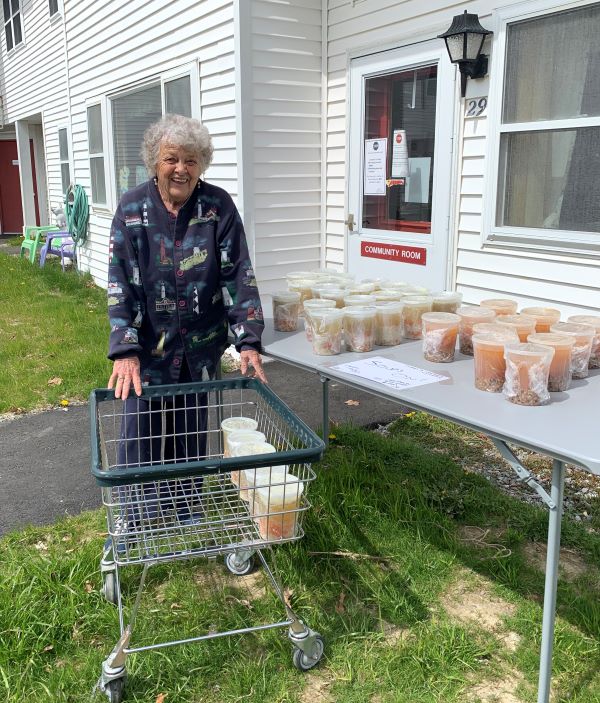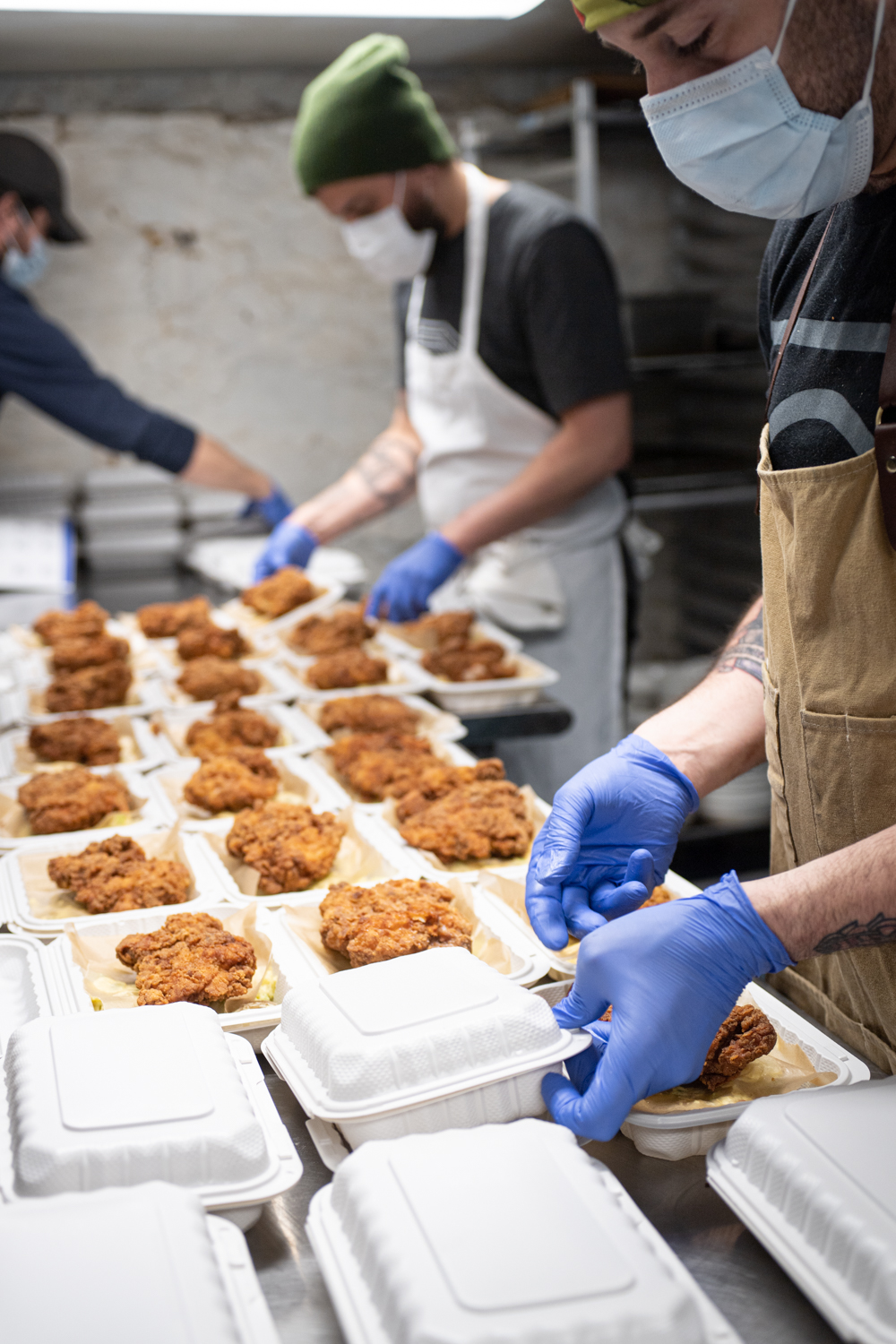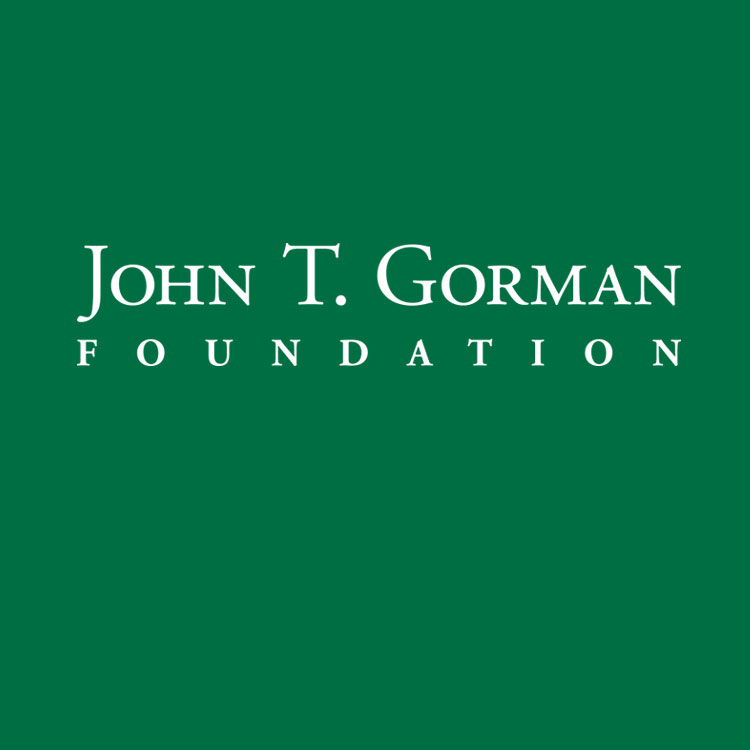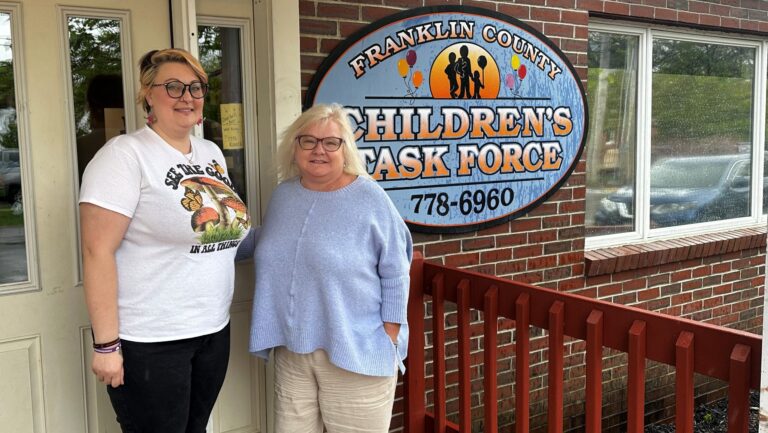This May, the John T. Gorman Foundation awarded $700,000 to 43 nonprofits across Maine in its annual Direct Services Grant Program. These grants support efforts to meet immediate, basic needs for low-income Mainers. (Full list of grantees available here). In this profile, we learn more about first-time grantee Cooking for Community.


During the COVID-19 pandemic, food has emerged as a common denominator of many challenges. Food insecurity overall has skyrocketed. Restaurants have had to close or lay off workers. And nonprofits have struggled to meet an increased demand for food while meeting social distance requirements.
Ellie Linen Low and others launched Cooking for Community to address those three intertwined problems with one simple solution – raising money to pay underutilized restaurants to cook meals that nonprofits could distribute to those in need. In early April, the group began a small pilot project to test the idea. Quickly raising $50,000, it paid two Portland restaurants – Chaval and Little Giant – to cook meals that Catholic Charities Maine, Preble Street, Amistad, and Wayside could deliver to their clients.
“It was a resounding success,” Low said, delivering 450 meals in the first two weeks. The effort quickly gained attention and community support. In addition to its first grant from the John T. Gorman Foundation, the group has also raised over $400,000 in the last three months from foundations and other donors.
The partnership now delivers 2,500 delicious, nutritious meals every week – many made with local ingredients to help Maine farmers. Recipients include several underserved populations in Greater Portland, including those who are homeless, elderly, disabled, immigrants, or in quarantine. Currently, 12 restaurant partners cook the food – with more on a waiting list – and eight community organizations deliver it.
Debora Keller, Executive Director of Bath Housing, said Cooking for Community has provided critical aid for her organization and the residents it serves. “We had been looking for a way to consistently provide a weekly, hearty, pre-made meal for residents,” she said. “We have now partnered with Cooking for Community to bring 140 meals to residents each week since April 14 – that’s over 2,100 meals.”
While the healthy meals are crucial, Keller also stressed the social connections served with them. On delivery days, staff have valued the chance to be able to see and talk to residents who have had to isolate in their homes. But the connection extends beyond the staff.
“Residents are deeply attached to Mama Mo, the chef that has prepared most of the meals,” Keller said. “She has done a wonderful job creating healthy meals that comfort the soul. Her meatloaf and shepherd’s pie are the favorites.”
Monique Barrett – AKA Mama Mo – says the feeling is mutual. “When I learned about Cooking for Community, it deeply resonated with me,” she said. “As a single mom I have often found myself and my family on the receiving end of food security programs over the years. So being in a position now where I am able to give back feels especially good.”
Barrett applauds how the initiative has not only been able to help small businesses like hers, but so many others as well. “Cooking for Community’s model really benefits everyone – the farmers and producers we source the ingredients from, the business owners and our employees, and the kind folks who so appreciate receiving a meal made with love and intention,” she said. “I’ve received some beautiful notes and cards from residents at Bath Housing and it just makes my heart swell.”
Cooking for Community may have been founded as a short-term relief fund, but it is now committed for the long haul. “Restaurants are still worried about the future. The demand for food continues to grow. The needs are still dire for the infinite future,” Low said. “We’ve seen how this model can work and we think there is potential to replicate it in other places. The question now is how can we pivot and find new sources of money to be stable.”
To learn more about Cooking for Community, go to https://www.cookingforcommunity.org/.


